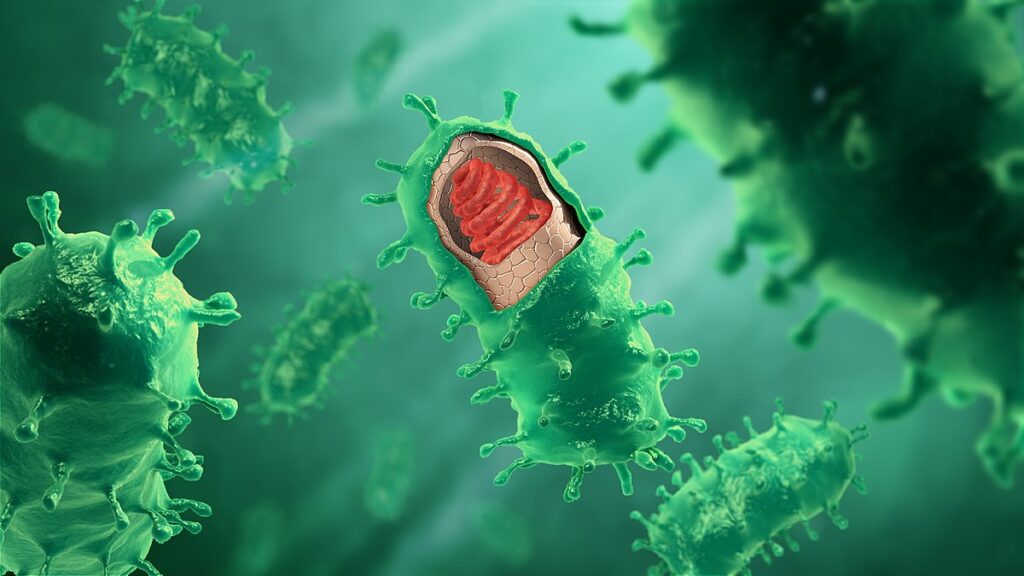Squirrels are fairly common rodents. But when it comes to animal bites, squirrel bites are probably not at the top of your worry list. This is understandable because the bites of other animals, like dogs, are much more common. However, that does not mean that squirrel bites are less serious…
Fast facts about squirrel bites
Squirrels are not likely to bite you, but squirrel bites should still concern you because of the possibility of rabies. This viral disease is incredibly dangerous. It affects the central nervous system, particularly the brain, and it leads to untimely death.
- Squirrels are not likely to bite you. Good news — squirrel bites are not that common. This is because squirrels are generally docile creatures. They want to be left alone. They just happen to be on your property because of food and other squirrel attractors. Most of the time, they will leave you alone and you can actually easily startle and scare them away. Generally, they only bite when they feel threatened.
- You should still be concerned about squirrel bites. Even though squirrel bites are not very common because of how timid squirrels are, they are still something you should be concerned about. Their rarity doesn’t change the fact that squirrel bites can give you rabies. In reality, small rodents like squirrels are almost never found to have rabies. But the fact still remains that they are wild animals and have the possibility to have been exposed to the rabies virus.
- Always assume the worst when you have been bitten. Rabies with clinical symptoms has a fatality rate of virtually 100%. If you have been bitten by an animal, seek medical attention immediately. You don’t want to take the risk and think that the animal that has bitten you is not infected with rabies. Always assume the worst. If you don’t, rabies can progress, and once clinical symptoms appear, there is no practical chance for you to survive.

What to do if you have squirrel bites
Clean the squirrel bites, but still get professional medical help because of the risk of rabies, infections, and other medical conditions.
- Apply first aid. Like other animal bites, the first thing you need to do on squirrel bites is to apply first aid. Clean the wounds immediately with warm water and soap. This will help prevent infection, irritation, and other mild medical conditions. But remember that first aid is just your first line of defense. You should still go to the emergency room if you have been bitten by a squirrel.
- Look for dangerous signs and symptoms. Squirrel bites are puncture wounds. Even if you don’t get rabies from them, there is still the risk of infection. You also have to think about the bleeding, the depth of the punctures, and the damage to your skin. Be on the lookout for the signs of infection, such as oozing, redness, and swelling. If the wounds are dirty, you will have an increased risk of infection. If you haven’t had a tetanus shot in a few years, you may need a booster shot — another reason to seek medical attention immediately.
- Seek medical attention immediately. Some animals are more likely to give you rabies. Dog bites, for instance, are the most common cause of rabies in humans. They account for 99% of cases, primarily because dogs are domesticated and we live close to them. Still, wild animals are capable of carrying the rabies virus, and many times, the symptoms are not very obvious. Don’t risk it. If you have been bitten by a domestic or wild animal of any kind, it’s always a good idea to go to the hospital.

How to prevent squirrel infestations
Make your property unattractive to squirrels by making food inaccessible and setting up barriers and traps that don’t necessarily hurt them but block and startle them enough to convince them to go away.
- Get rid of all food sources. Squirrels are on your property because they can find food on it. It’s that simple. If they can’t find food on your property, there will be no reason for them to be there. Put your food in cabinets, containers, and refrigerators. Make sure to use containers that squirrels won’t easily bite through, such as glass and metal ones. Also, avoid storing food in attics, basements, garages, and other parts of your home that are dark and you don’t often visit.
- Set up a natural or artificial barrier around your home. Close your doors and windows at all times. Cover or seal cracks, gaps, and holes where squirrels can squeeze through. You can also put up barriers around your property, especially if you have a garden with fruits and vegetables that will surely be targeted by squirrels. Garden fences are great artificial barriers. If you want a more natural approach, you can try surrounding your garden with plants that squirrels naturally hate, such as daffodils, hyacinths, marigolds, and other alliums like garlic and onion. These squirrel-repelling plants can serve as a natural barrier.
- Startle squirrels with sprinklers. Don’t be barbaric. As much as you can, try to get rid of squirrels as humanely as possible. One way to do this is to set up motion-activated sprinklers. When these sprinklers detect motion, they will sprinkle water all over the place. This gesture will startle squirrels trying to sneak into your property — enough to make them run away. If you startle them frequently enough, they may finally get it and just leave your property for good. The best thing here is that you are not even harming the squirrels. You are just startling them with a sprinkle of water.
Squirrel bites are still dangerous
Squirrels are not likely to bite you because they are naturally timid creatures. But the threat is still there, especially if you disturb squirrels or try to hurt them. They may fight back. This puts you at risk of squirrel bites and all the dangers associated with them — rabies and infections.
If you have been bitten by a squirrel, clean the affected area with soap and water. And then seek medical attention immediately, especially if you are not sure whether the wild animal has rabies or not.


Thank you for all this information. But, In the Native American religion we believe that all things in nature are related. The animal spirit, plant spirit, water spirit, fire spirit and human spirit all walk in harmony together as one entity. What one fears they destroy. ✊🏼🪶